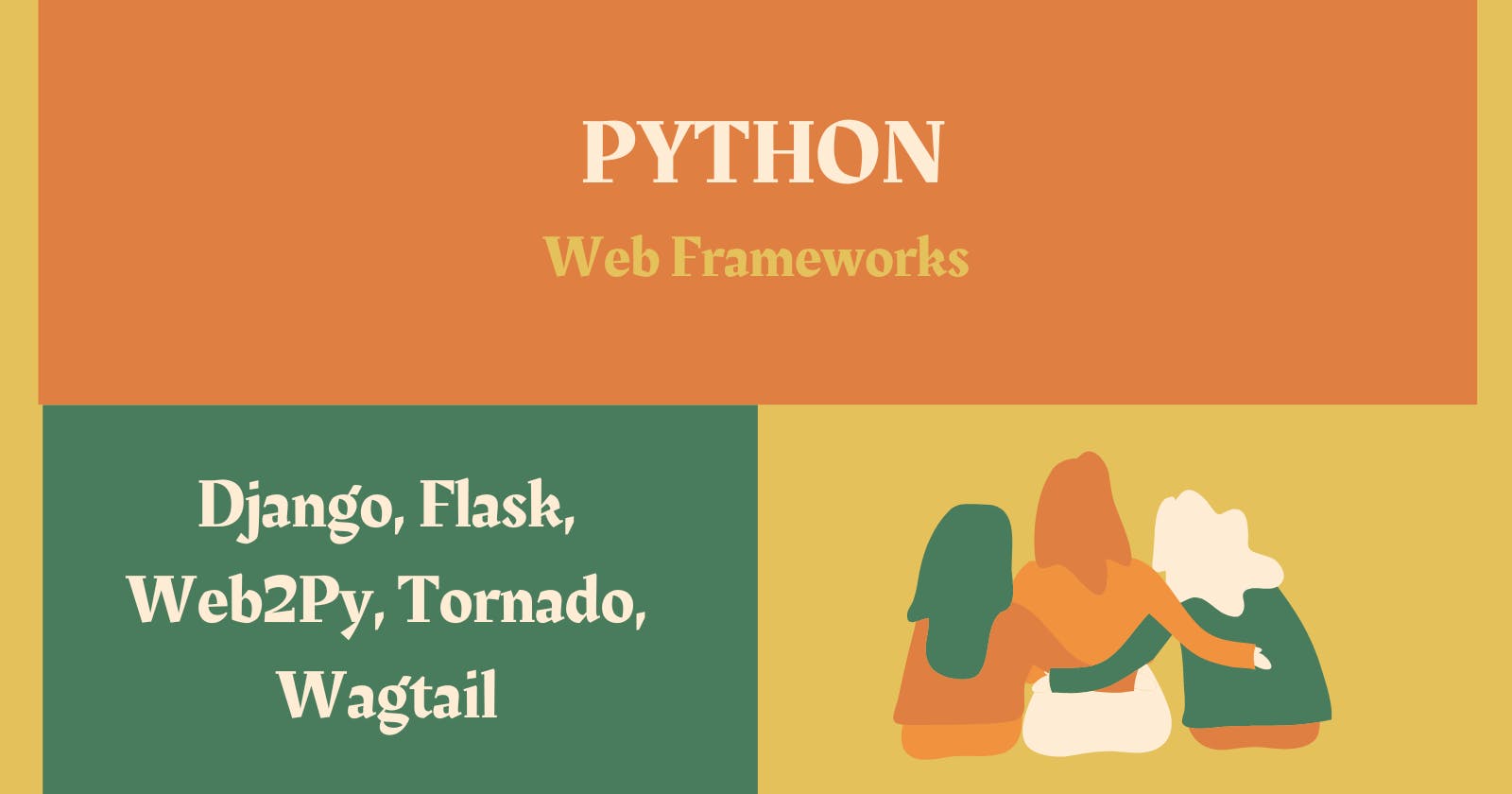Python is a versatile and powerful programming language that is widely used for web development. There are several web frameworks available for Python that can help developers build web applications quickly and easily. However, with so many options to choose from, it can be difficult to know which one is the best fit for a particular project.
In this blog post, we will take a look at some of the most popular Python web frameworks and compare their features, strengths, and weaknesses. We will also discuss when to use each one based on the specific requirements of a project.
Django
First, let's take a look at Django. Django is a high-level web framework that is designed to make it easier to build complex, database-driven web applications. It follows the "batteries included" philosophy, which means that it comes with a lot of built-in features and functionality, such as an ORM, an admin interface, and support for middleware. This makes it a great choice for building large, complex web applications, but it can also make it feel heavy and over-engineered for smaller projects.
Flask
Next, we have Flask. Flask is a lightweight web framework that is designed to be simple and easy to use. It doesn't come with a lot of built-in features like Django, but it is highly extensible and can be used to build a wide variety of web applications. Flask is a great choice for building small to medium-sized web applications, and is also a popular choice for building RESTful APIs.
Pyramid
Another popular web framework is Pyramid. Pyramid is a more flexible and less opinionated web framework than Django and is great for building both small and large web applications. It is also suitable for building RESTful APIs, and has good support for multi-tenancy and security.
There are other web frameworks like Tornado, web2py, TurboGears, etc which are also popular among the Python community. Each one of them has its own benefits and use cases.
FastAPI
Another popular web framework is FastAPI. FastAPI is a modern, fast (high-performance), a web framework for building APIs with Python 3.7+ based on standard Python-type hints. The primary feature of FastAPI is its speed, it is one of the fastest web frameworks in Python. It is also lightweight and easy to learn, making it a great choice for building small to medium-sized web applications and RESTful APIs.
Wagtail
Wagtail is a popular web framework for building content management systems (CMS) with Python. It is built on top of Django, which means it inherits many of Django's features and functionality. But it also includes some additional features specifically tailored for building CMS-driven websites, such as a built-in CMS interface and support for creating custom content types.
Sanic is another async web framework for Python. Sanic is built on top of uvloop and httptools, which makes it one of the fastest web frameworks in Python. It's perfect for building high-performance web applications and APIs.
In summary, there are many different Python web frameworks to choose from, each with its own strengths and weaknesses. Django is a great choice for building large, complex web applications, while Flask is a great choice for building small to medium-sized web applications and RESTful APIs. Pyramid is a more flexible and less opinionated web framework, suitable for building both small and large web applications. Tornado, web2py and TurboGears are great for building high-performance web applications, FastAPI is great for building fast and efficient APIs and Wagtail is great for building CMS-driven websites. And Sanic is a perfect fit for building high-performance web applications and APIs.
In conclusion, the choice of a web framework for a Python web development project depends on the specific requirements of the project. For large and complex web applications, Django is a great choice, while Flask is a great choice for small to medium-sized web applications. Pyramid is a great choice for a more flexible and less opinionated web framework, Tornado and web2py are great for building high-performance web applications and TurboGears is great for building large, enterprise-level web applications.
It's important to consider the specific requirements of a project when choosing a web framework. The right choice will make the development process more efficient and ultimately result in a better product.

